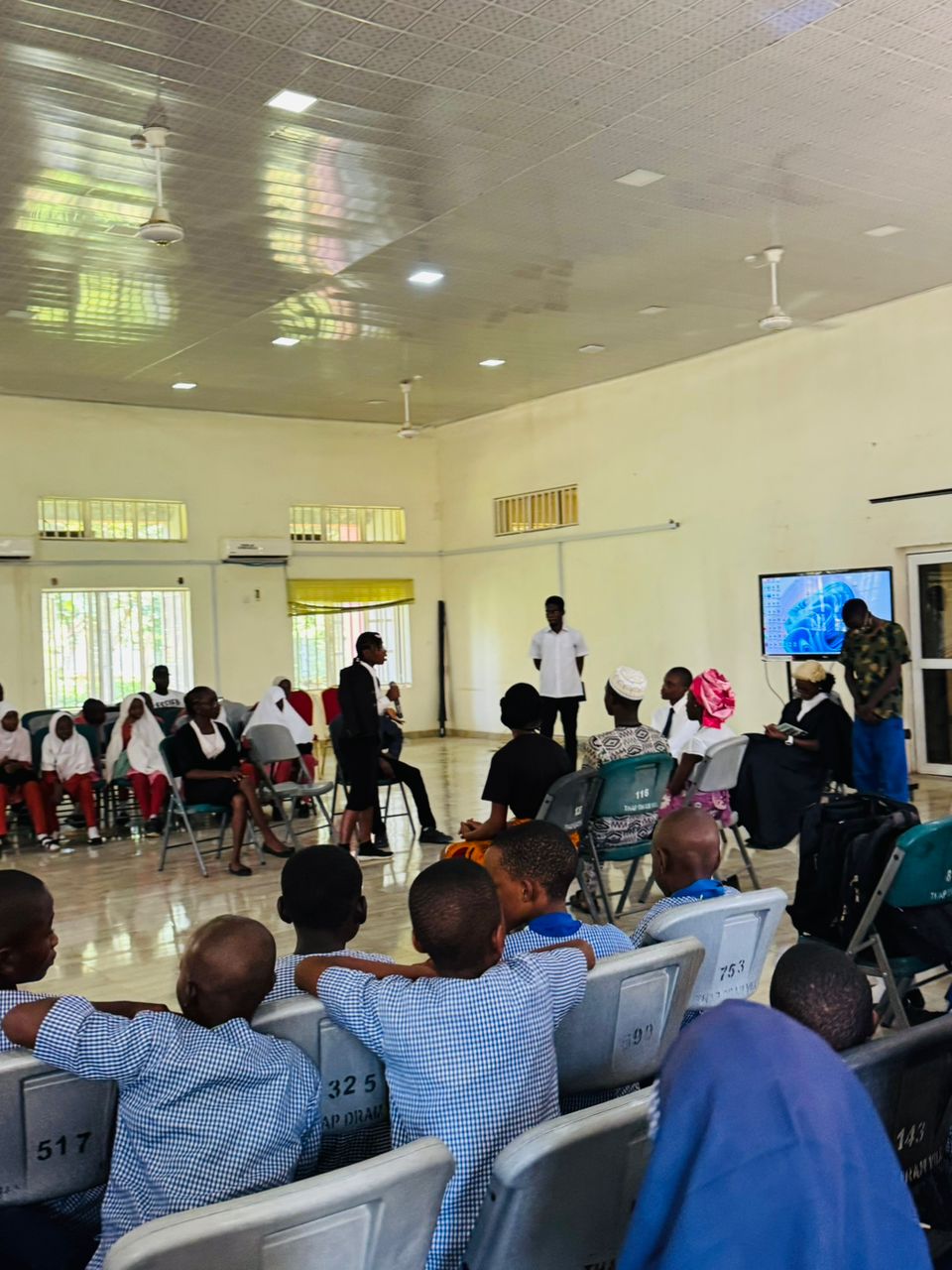By; ISAAC ODEH, Kaduna Young artists and activists in Zaria use theatre, poetry, and community engagement to redefine leadership and national re
By; ISAAC ODEH, Kaduna
Young artists and activists in Zaria use theatre, poetry, and community engagement to redefine leadership and national responsibility.
In a bold display of creativity and conscience, students from across Zaria. Kaduna State converged at the Ahmadu Bello University (ABU) Studio Theatre Annex in Zaria for youth spotlight to commemorate the Nigerian Independence Day celebration.
The event which was organized by the Creative Arts for Development Center (CRADC) under the theme Leadership and Civic Responsibility, placed Nigerian youth at the heart of national reflection using art as a language of change in a country yearning for moral renewal and visionary leadership.
In an opening address, the Executive Director of CRADC, Dr Franklin Zaure, hailed the activism of young people noting that Nigeria must consider everyone below the ages of 30 as the changemakers of today, and not leaders of tomorrow.
“Young Nigerians are living and bringing changes in the now. The idea of tagging them as leaders of tomorrow has since been overtaken by the changes they are making in economy, entertainment and governance. Why not call them the changemakers of today,” he said.
The Stage as a Mirror of Society Theatre took centre stage as students dramatized Nigeria’s enduring challenges such as corruption, injustice, and civic apathy through satire and symbolism.
One memorable performance, The Broken Oath, portrayed a town ensnared by deceit and neglect until its citizens unite to reclaim honesty and hope.
Each performance echoed a generation’s frustration with failed leadership and its determination to craft a different narrative.
The drama sessions flowed seamlessly into spoken word performances, where poets used rhythm and metaphor to challenge peers to confront social ills.
“If we don’t rise,” one poet warned, “the silence of our generation will become the history we regret.”
The performances drew standing ovations, merging entertainment with enlightenment in a way that only young, fearless voices could.
Art That Challenges and Inspires Around the theatre, visual art installations extended the dialogue from the stage to the walls. Among the standout works was a reimagined Lady Justice — eyes uncovered and unblinded — symbolizing an awakened citizenry determined to confront inequality and corruption head-on.
Another painting of the Nigerian flag, half-obscured by heavy brushstrokes, evoked the country’s bruised resilience. These works, organizers said, were meant to transform civic education into “emotional literacy” using art to provoke conscience as much as admiration.
“We wanted to show that justice cannot be blind when the people can see,” explained one of the student artists.
“Art allows us to speak without fear, but also to heal.”Civic Engagement Beyond the Stage.
The event moved beyond performance into practical demonstration. Participants organized a campus-wide environmental cleanup, gathering litter and beautifying public spaces within and around ABU.
The act, simple yet symbolic, reflected the event’s message: that civic responsibility begins with local action. For Zaure, the cleanup represented a living metaphor for national reform.“When young people take care of their environment,” he said, “they are learning to take care of their nation.”
The initiative turned what might have been a symbolic celebration into tangible service, uniting art and activism in a single gesture of responsibility.Recognizing Leadership in ActionParticipants received books, pens, caps, bags, and certificates of participation, not merely as gifts but as recognition of their commitment to creative leadership and social change.
Dr. Victor Ihidero, a lecturer in Theatre and Performing Arts at ABU, praised the event for its educational impact and charged the CRADC for more youth-centric civic engagements considering the 2027 elections.
“This is theatre doing what it should, awakening civic consciousness. These students are not waiting for the future. They are living it,” he said.
A New Definition of Patriotism Unlike traditional Independence celebrations marked by parades and political speeches, Youth Spotlight embodied a quieter, more introspective patriotism.
The students’ performances and actions turned national pride into a living ethic; one that values honesty, empathy, and accountability.
Observers drew parallels between the Zaria gathering and similar youth-led movements across Africa, where art, technology, and performance increasingly serve as platforms for civic dialogue and reform.
From Lagos to Nairobi, young Africans are repurposing creativity as protest and participation. This is an awakening that reflects the continent’s restless search for integrity in governance.
In his closing remarks, Zaure captured the spirit of the occasion saying that when youths create, they lead.
“When you serve, you build. And when you speak truth through art, you change your world. This a generation that is refusing to Wait” he said.
As the lights dimmed and applause filled the ABU Studio Theatre, one truth stood clear: Nigeria’s youth are not waiting for permission to lead. They have already begun.
Creative Arts for Development Center (CADC), Zaria, Nigeria
Email: info@cadc.ng | Website: www.cadc.ng




COMMENTS